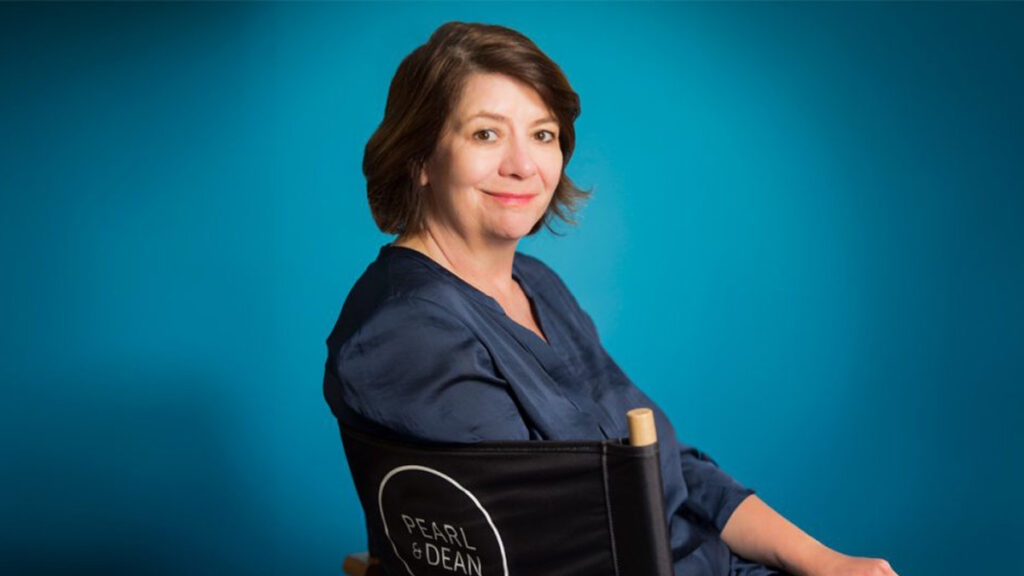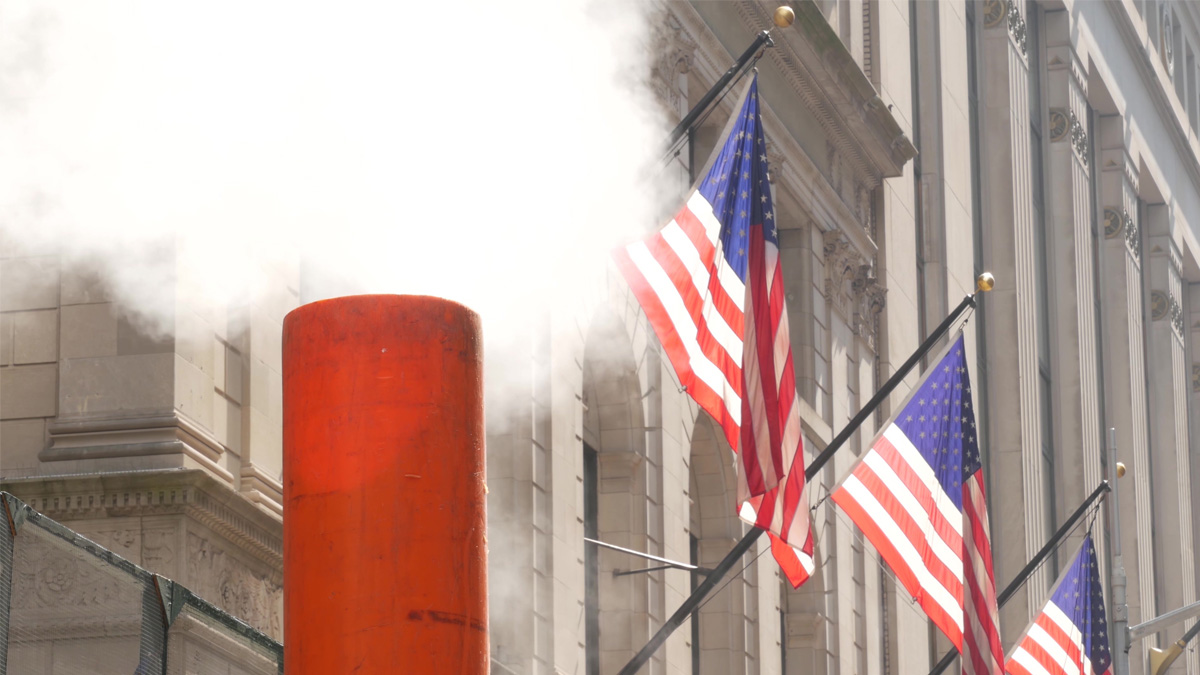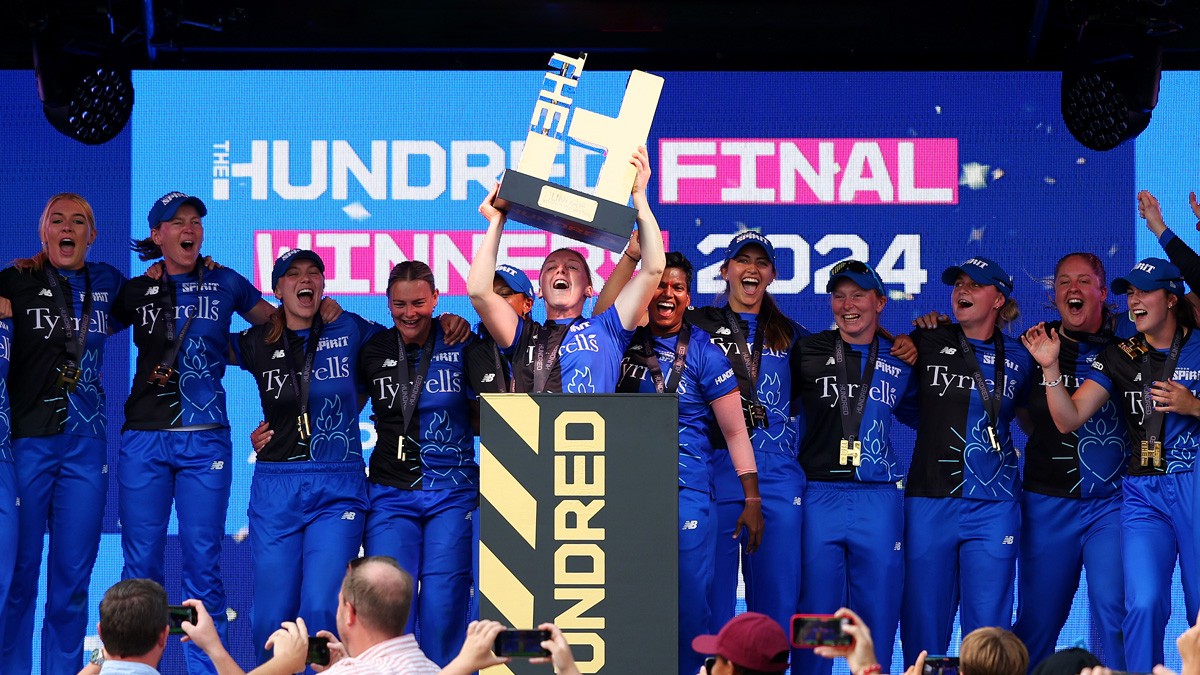The leader behind Pearl & Dean’s workplace culture revolution

“Empathy, listening skills, calmness, energy.” These are the four characteristics Kathryn Jacob, CEO of cinema advertising company Pearl & Dean, attributes to a great business leader. Displayed as the “conductor of the very fine musicians and experts,” Kathryn Jacob is the “oil between the wheels” of the company.
Founded by Charles and Ernest Pearl and Jack Dean in 1953, today Pearl & Dean has around 60 employees and an annual turnover of almost £21m. The company is packed with valuable lessons in transforming company culture, staff retention, partnering with a rival and much more.
“I’ll be back”
In order to hit the ground running and bounce back from the economic hit of the Covid-19 pandemic, Jacob and her senior team made the decision to take a 40% pay cut to avoid redundancies. However, this was made abundantly clear that it is simply the way Pearl & Dean work, “it’s just that thing about looking after people,” she says.
Due to the pay cut and lack of redundancies, along with the help of furlough, in which they rotated employees, Pearl & Dean had a completely full team on their return so they could hit the ground running. Defending her choice, Jacob said, “If you’re someone who’s made those strategic redundancies, you then have to rebuild your team back.” Taking the pay cut and defending employee jobs, Jacob believes that the move inspired a lot of loyalty in people.
For Jacob, keeping employees together after the lockdown was essential because “you need that energy” in order to bounce back effectively. They began with a ‘pop in but don’t feel that you have to’ mindset for return to the office rules, which changed to five days a week in the office as mandatory for a month. It finally morphed into three days in the office, and two at home.
However, giving flexibility to employees comes with a sense of collective responsibility, especially with a small team. Jacob says if you were to spend the afternoon watching Christmas films, “you know that someone else is going to have to pick up the slack.”
A distinct abundance of trust is required for company cohesion.
“I feel the need – the need for speed!”
Thinking she was only going to be there for six months as interim CEO, Jacob decided to put her foot on the accelerator ‘Thelma and Louise style’ and take the leap of changing company culture. “You’re really reluctant to make changes if you believe you are in this leadership position for the long haul,” she says.
Her first priority was to shift the company culture to more of a collective view, embedding an interdependent culture within the company. She says, “We used to have a culture where the sales team would go home early if they had a good week.” However, companies aren’t just their sales teams, they are also the operations teams helping to put ads on the screen, or the finance department collecting cash from advertisers.
Jacob refused to have her own office, instead deciding to sit amongst the employees, which she admits it did “scare them a bit.” However, this was her stating openly that her direction is about transparency and accountability. This approach appears to be paying off, with the company’s staff turnover being less than 5%. An impressive feat, considering the UK average is 35%.
Pearl & Dean, according to Jacob, is a place where you’re rewarded for trying your best. “We try to find job roles and opportunities that fulfil you” as an employee, as opposed to filling a role that is seemingly needed. Importantly, this isn’t just a platitude. One employee, who started out as an intern, and progressed to the partnerships team had a role “created for her” because she was more likely to thrive there.
Jacob then set her sights on improving internal meetings: “We used to have internal meetings that went on longer than some small skirmishes in wars between countries.” In fact, she says that it’s likely “you’re not communicating properly.”
“Just keep swimming”
Cinema is a picture of resilience. It’s come under threat by radio in the 1930s, television in the 1960s, video in the 1970s, and more recently, the rise of streaming platforms, such as Netflix and Disney+. The consensus during Covid was that everything would go straight to streaming, but then you have cultural moments like Barbenheimer. The release of Barbie and the biographical thriller Oppenheimer on the same weekend generated $235.5m (£187.9m) in ticket sales in the US, single-handedly causing a surge in cinema visits.
Martin Scorsese’s Killers of the Flower Moon and Ridley Scott’s Napoleon, both funded by Apple, have opted for large theatrical releases in the past few months. Jacob believes that this isn’t a surprise, because “it gives a kudos and a stature to a release, which you don’t get if it goes straight to streaming.”
Cinema advertising isn’t where it used to be. In fact, Jacob shared that Pearl & Dean brokered a deal between Barbie and Boots, which had huge benefits for both the film and for the retailer. Barbie had the added publicity of being put in front of millions of Advantage card holders, but also for Boots who had access to the Barbie IP and had a decal of Margot Robbie and a Soltan logo.
“Louis, I think this is the beginning of a beautiful friendship”
Unfortunately for Pearl & Dean, the only other company in cinema advertising, Digital Cinema Media (DCM) is owned by Odeon and Cineworld, which shuts down some opportunities for growth. However, they have different specialisations. Jacob explains, “For example, DCM has more of the multiplexes, whereas Pearl & Dean has more of an independent lux offering.”
The companies are “mutually dependent” as the more people that are talking about cinema, the better. Pearl & Dean struck up a partnership with DCM after the return to cinema post-Covid, because working “collectively as an industry would have more of an impact.” Brokering partnerships through media companies like MG OMD, the advertisers demonstrated their willingness to work together in order to succeed.
When asked about the dangers of employee poaching, Jacob simply said, “if people don’t want to work in cinema, they probably go and do something else, as opposed to doing the same, but in a different geography.” The lack of disdain Kathryn Jacob had for DCM, or rather the amount of respect she had for the rival, was refreshing. In an industry you could call ultra-competitive, was simply turned into a way to work together for mutual benefit, something many other companies would well learn from.
“To infinity and beyond!”
When asked about the future of the industry, Jacob was enthusiastic in saying, “There’s so much more that we are going to be able to do.” Personally, I can’t wait to go to the cinema and watch the ads. Paired with the trailers, they are an intrinsic part of the experience. With standard 32-second ads in cinema, people pay attention to 24 seconds of a cinema ad. Compare this to the recorded 8.25 seconds average for human attention span, this is an impressive feat in itself.




